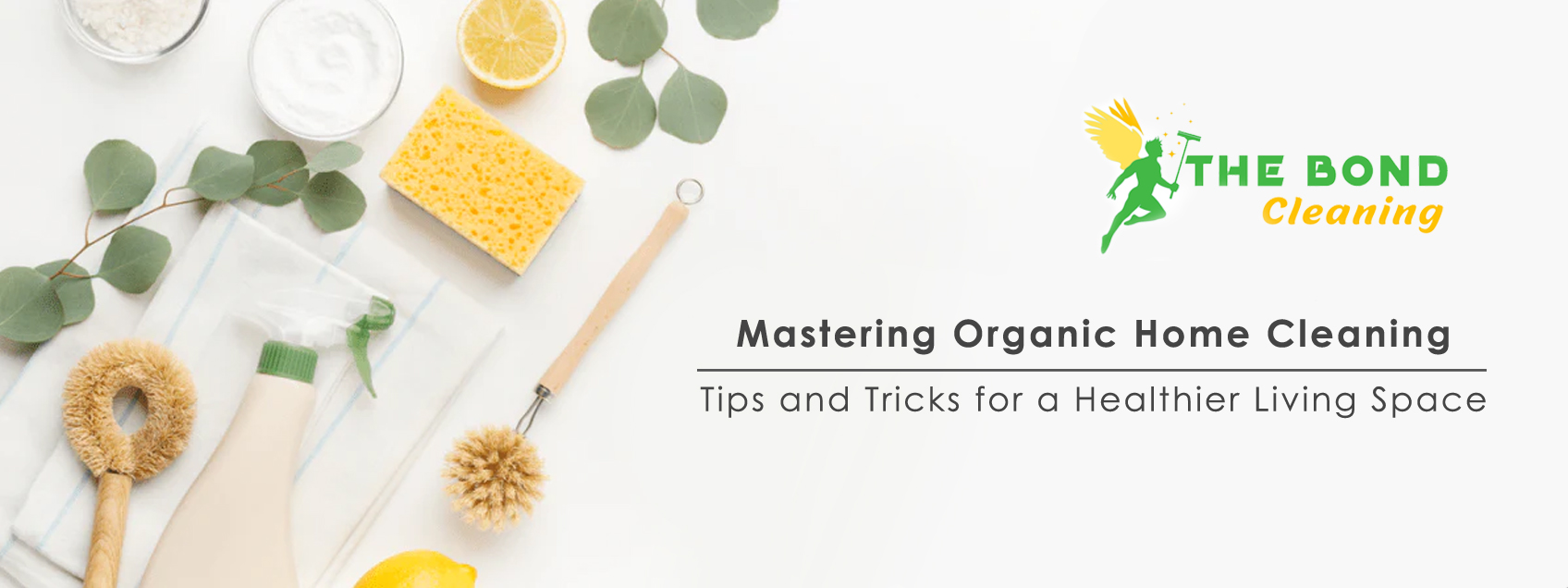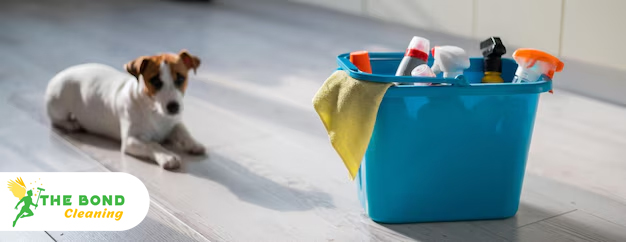Organic Pest Control: Safeguarding Your Home Naturally
Maintaining a pest-free home is essential for both comfort and health. However, many conventional pest control methods involve the use of harsh chemicals that can be harmful to humans, pets, and the environment. Fortunately, there are effective organic pest control methods available that can help you keep your home free from pests while minimizing your impact on the environment. In this article, we'll explore various organic pest control techniques that you can implement to safeguard your home naturally.
Understanding Organic Pest Control:
Organic pest control involves using natural methods to manage and prevent pest infestations. These methods focus on addressing the root causes of pest problems rather than relying on chemical pesticides. By promoting a healthy environment and ecosystem balance, organic pest control methods aim to keep pests at bay without compromising the health and safety of humans and other living organisms.
Identifying Common Household Pests:
Before implementing any pest control measures, it's essential to identify the pests that are causing problems in your home. Some of the most common household pests include:
Ants: These tiny insects can enter your home in search of food and water, forming colonies in cracks and crevices.
Cockroaches: Cockroaches are known for their ability to thrive in various environments and can contaminate food and spread diseases.
Rodents: Mice and rats are common household pests that can cause extensive damage by gnawing on wires, insulation, and furniture.
Termites: Termites feed on wood and can cause significant structural damage to homes if left unchecked.
Bed bugs: These blood-sucking parasites hide in mattresses, upholstery, and cracks in walls, causing itchy bites and sleepless nights.
Implementing Pest Control Measures:
Once you've identified the pests in your home, it's time to take action. Here are some effective pest control measures you can implement:
1. Maintain Cleanliness: One of the simplest yet most effective organic pest control measures is to keep your home clean and free of food debris. Pests such as ants, cockroaches, and rodents are attracted to crumbs and spills, so regularly clean countertops, floors, and other surfaces where food may accumulate. Additionally, store food in airtight containers to prevent access by pests.
2. Seal Entry Points: Prevent pests from entering your home by sealing any cracks, gaps, or openings in walls, windows, doors, and foundations. Use caulk or weatherstripping to seal gaps, and install screens on windows and doors to keep insects out. By denying pests entry to your home, you can significantly reduce the likelihood of infestations.
3. Natural Repellents: Many common household items can serve as natural pest repellents. For example, the scent of peppermint oil is known to repel ants, spiders, and mice. Simply dilute peppermint oil with water and spray it in areas where pests are present or likely to enter. Other natural repellents include citrus peels, cloves, and garlic, which can deter various types of pests when placed strategically around the home.
4. Beneficial Insects: Encourage the presence of beneficial insects in your garden to help control pest populations naturally. Ladybugs, lacewings, and praying mantises are examples of beneficial insects that prey on common garden pests like aphids, caterpillars, and mites. Planting native flowers and herbs can attract these beneficial insects to your garden, creating a natural balance that reduces the need for chemical pesticides.
5. Diatomaceous Earth: Diatomaceous earth is a natural substance derived from fossilized algae that is effective at controlling a wide range of pests, including ants, bed bugs, and fleas. It works by absorbing the oils and fats from the exoskeletons of insects, causing them to dehydrate and die. Diatomaceous earth is safe for humans and pets but should be applied carefully in areas where pests are active.
6. Neem Oil: Neem oil is another natural pesticide derived from the seeds of the neem tree. It contains compounds that disrupt the growth and reproduction of insects, making it an effective treatment for pests such as aphids, mites, and whiteflies. Neem oil can be diluted with water and sprayed onto plants to control pest infestations without harming beneficial insects or the environment.
7. Homemade Traps: Create homemade traps using common household items to capture and eliminate pests without the use of chemicals. For example, a mixture of sugar and baking soda can be used to attract and kill ants, while a shallow dish filled with beer can lure and drown slugs and snails. Experiment with different trap designs and bait combinations to effectively target specific pests in your home or garden.
8. Remove Standing Water: Eliminate sources of standing water, such as leaky pipes and clogged gutters, to deter pests like mosquitoes and ants.
9. Seek Professional Help: If your pest infestation is severe or persistent, consider hiring a professional pest control service. Pest control professionals have the knowledge, tools, and expertise to effectively eliminate pests from your home.
Benefits of Organic Pest Control:
Opting for organic pest control methods offers numerous benefits for homeowners and the environment:
Reduced Exposure to Harmful Chemicals: Organic pest control eliminates the need for toxic chemicals, reducing the risk of exposure to harmful substances for you, your family, and your pets.
Preservation of Beneficial Insects: Unlike chemical pesticides, organic pest control methods do not harm beneficial insects such as bees, butterflies, and ladybugs, which play a vital role in pollination and pest control.
Environmental Sustainability: By promoting natural pest control methods, you contribute to a healthier environment with less pollution and biodiversity loss.
Cost-Effectiveness: Many organic pest control solutions can be made using inexpensive household items, saving you money on expensive chemical treatments and professional pest control services.
Conclusion:
Maintaining a pest-free home organically is not only possible but also beneficial for your health, the environment, and your wallet. By implementing simple yet effective organic pest control techniques such as cleanliness, natural repellents, and beneficial insects, you can safeguard your home against pests while minimizing your ecological footprint. Embrace the principles of organic pest control and enjoy a healthier, more sustainable living environment for years to come.




Comments
Post a Comment